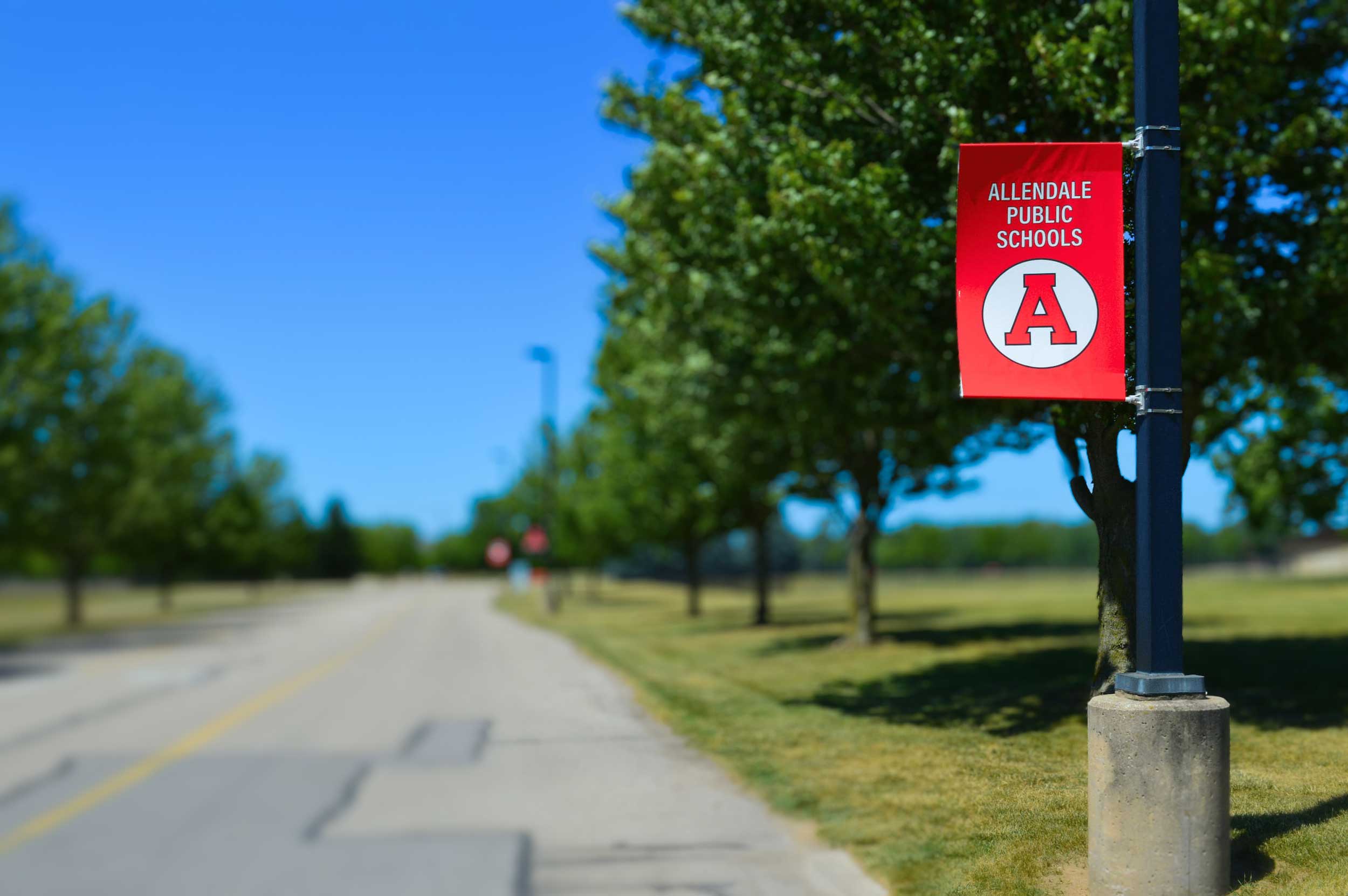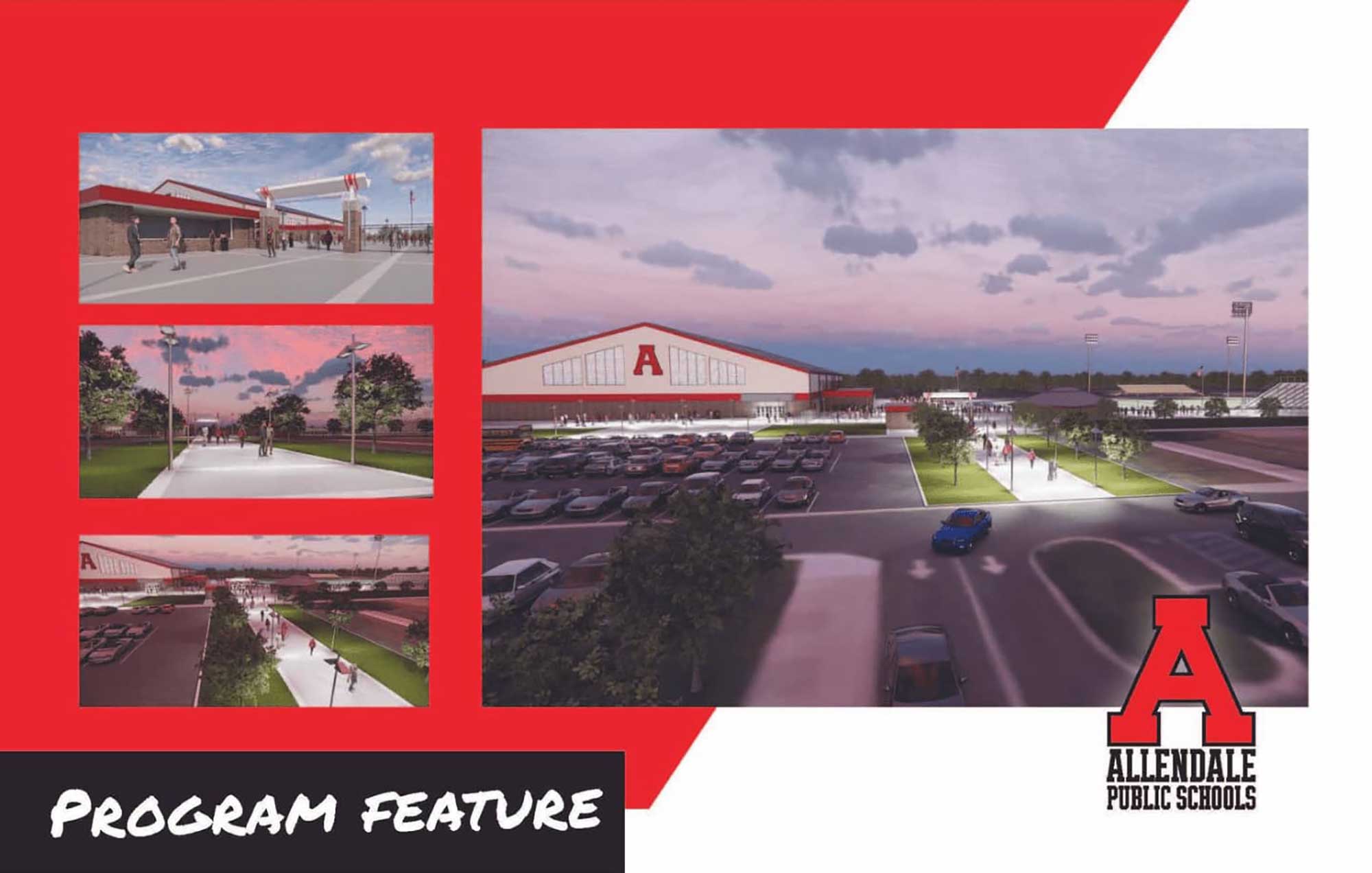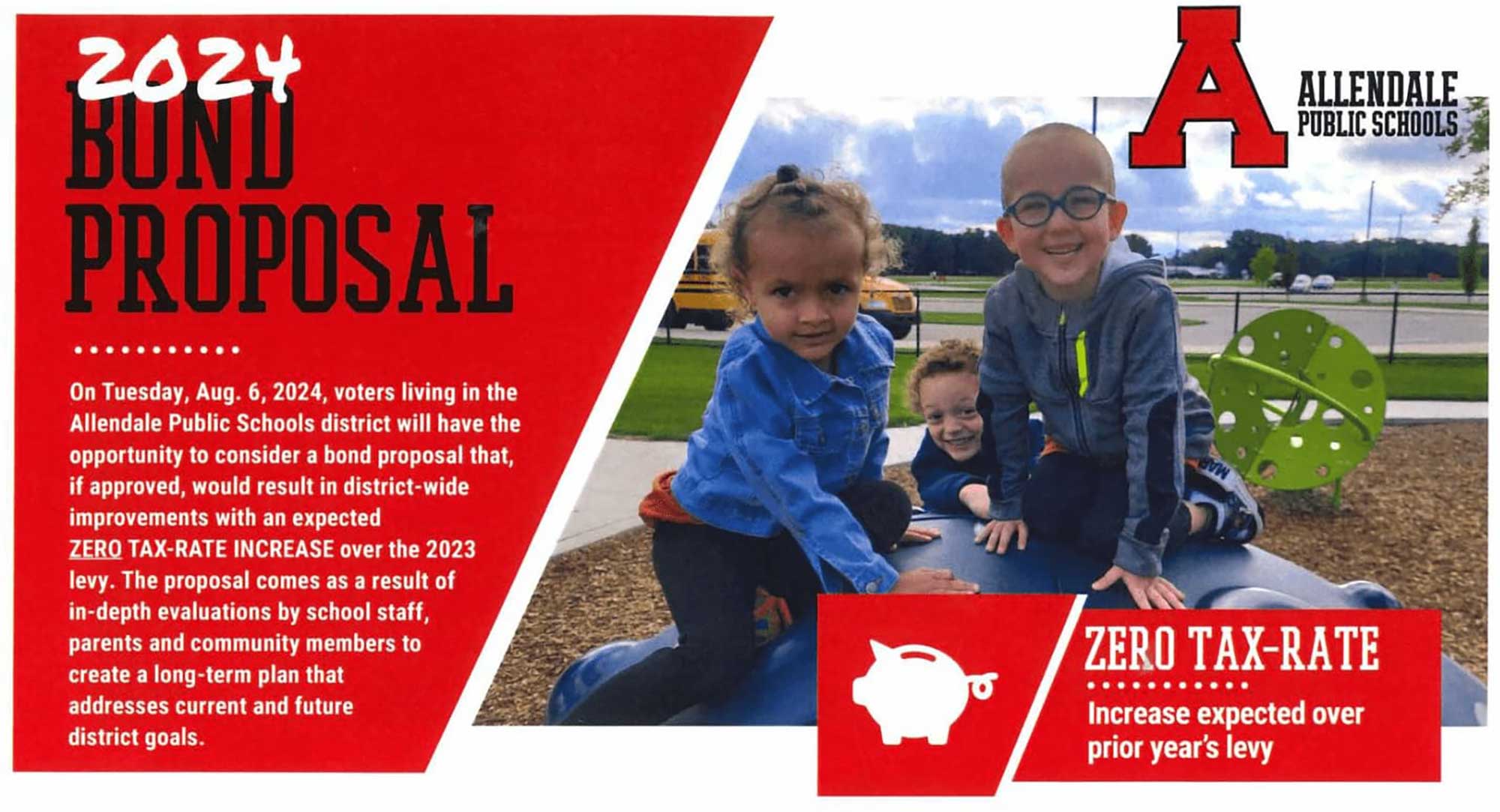

With summer taxes coming due, many are continuing to feel the debt burden of past school bonds. Schools have gotten so good at passing new bonds as soon as the old ones end, that there never seems to be a light at the end of the tax tunnel.
Increasingly, items that schools want the community to pay for feel more like “keeping up with the Jones,” aka other districts, rather than the bare bones of making sure kids are in safe structures that keep out the weather and provide a place to learn.
Given the elements and cost of many proposals, it would stand to reason that there would be residents not on board with handing over thousands of dollars (and rising) when the tax bill comes due.
And yet, at least in Allendale, there were some who were baffled when the bond proposal failed. Twice. First a proposal failed in the primary election in August of 2024 at $88.27 million and then again at a special election in May of 2025 at $88.135 million—which failed by an even larger margin. These losses came after spending tens of thousands on marketing.

In discussions at the June 9 and June 23 Allendale Public Schools (APS) board meetings, some members blamed the failure of the proposals on everything but the community needing relief from more tax burden.
Trustee Pam DeJong said the reason for the failure of the bond was due to a “negative campaign,” saying how there was “so much disinformation.” She marveled at how people in the community could still believe there was going to be an increase in their taxes, even though time after time they had explained that there wouldn’t be.
Board President Kevin Holstege looked to Facebook as having been a “huge contributor to the narrative” and wondered how the school could counter that influence next time around.
No one appeared to ask whether the current tax rate with rising inflation had put a strain on taxpayers.
And no one appeared to suggest allowing the current bond to run out—which would drop the tax rate exponentially and give the taxpayers a breather before hitting them up again. Nor did anyone seem to consider how many other millages might be on the ballot of upcoming elections.
Rather, though barely one month had passed since the community failed to pass the last bond, Superintendent Dr. Garth Cooper asked if the board would like to consider a third bond proposal within the next year.
The board compared feedback each had received and pondered whether the community would support a bond that focused only on educational buildings this time, and not athletics. There was discussion on whether hiring a marketing company to survey the district would be valuable. Dr. Cooper reasoned that data from a survey could show what the threshold of the community might be. Would they be more willing to support $40 million, $50 million…? Or, if the data wasn’t favorable, maybe they shouldn’t consider another proposal at this time.
By the June 23rd meeting, Dr. Cooper said he thought the survey wasn’t needed. He explained that they’d probably received enough feedback and that the money would be better spent on a mailer to those in the community not connected with the school.
Trustee Brandon TenBrink asked the board to consider reframing the proposal. Instead of asking the community, "What are you willing to spend?" he thought the board should be asking internally, "What are the actual needs of district?" And then build on that.
Isn’t that where every bond discussion should begin?
Shouldn’t every request for funding be merit based and not about how much money a school can get from the residents?
Tenbrink reasoned that the community hadn’t had enough information to see specifically why the money was needed or exactly how much was going for each need. He also thought the way the bond was advertised as not increasing taxes “rubbed people the wrong way,” saying the messaging was “not very forthcoming” and “not very transparent.” And he said it would be better if the information were presented by a third-party consultant.

Regarding the urgent needs detailed in the last proposals, Trustee Tonya Harris asked the superintendent if there were concerns that had been asked for previously that needed to be dealt with immediately, or if those needs could wait for a new bond proposal. As an example, she asked whether the air conditioning was going to blow or if anything was going to collapse before August of 2026.
The superintendent assured Harris that APS was OK, and that there were no immediate needs. He added that actually he had received notification that the Filter First grant was going to fully cover what had been needed. Additionally, the school had received a grant that will pay the cost of the boiler needs.
By the June 23rd meeting, the superintendent had drawn up a new potential bond proposal that focused only on educational spaces and would cost taxpayers around $51 million—a $37 million discount from the other bonds.
Holstege asked about sending out an email to coaches, teachers, and administration, saying in case “something was missed… any hopes or dreams” from the previous proposals that now was the time to speak up and reach out to the board.
Holstege’s comment raises the question: Should bonds be about fulfilling hopes and dreams or should they be based on merit, bearing in mind the weight of the ask?
Brainstorming took place on how the board could get information out to residents. Dr. Cooper said that there are 600 employees, which will mean 600 ambassadors to the community who could be well educated on the elements of the bond.
Are staff members who live in the district willing to do this? Are they paid so well that high taxes pale in comparison to their compensation?
DeJong talked about how some people will vote no, no matter what. She thought it might be a good idea to get a handle on how many feel that way so the marketing could target the audience that is “negative.”
Dr. Cooper countered that those prone to voting no are going to vote no, and that they wouldn't be able to convince them otherwise. He didn’t think that marketing to those against the bond would be time, money, or effort well spent.
According to the two meeting discussions, the overall mindset appeared to be: If the community has more specific information about what the money is going for, if the proposal is on the primary ballot when they’re already at the polls, if the board removes the field house, artificial turf, and anything else that’s not educational, they’re golden.
But is the board considering that the community may be overwhelmed by tax, that there are no urgent needs, and that a large portion of the community has no involvement with the school?
The APS school board is not the only district having discussions to figure out how to pass a bond. Across the county bonds have failed and continue to be reworked by boards who may or may not be listening to their residents.
Do you have thoughts on how your board should move forward? Let them know.
And if you're in Allendale, the APS school board will pick up the bond discussion Monday, July 14, at 6:00pm. Information on attending can be found on the APS website.

Krista Yetzke is a native of Ottawa County. A jeep-driving, guitar-playing wife, mom, and everyday adventurer, Krista was raised on the love of Jesus, the great outdoors, the arts, the value of frugality, and the beauty of food as medicine.